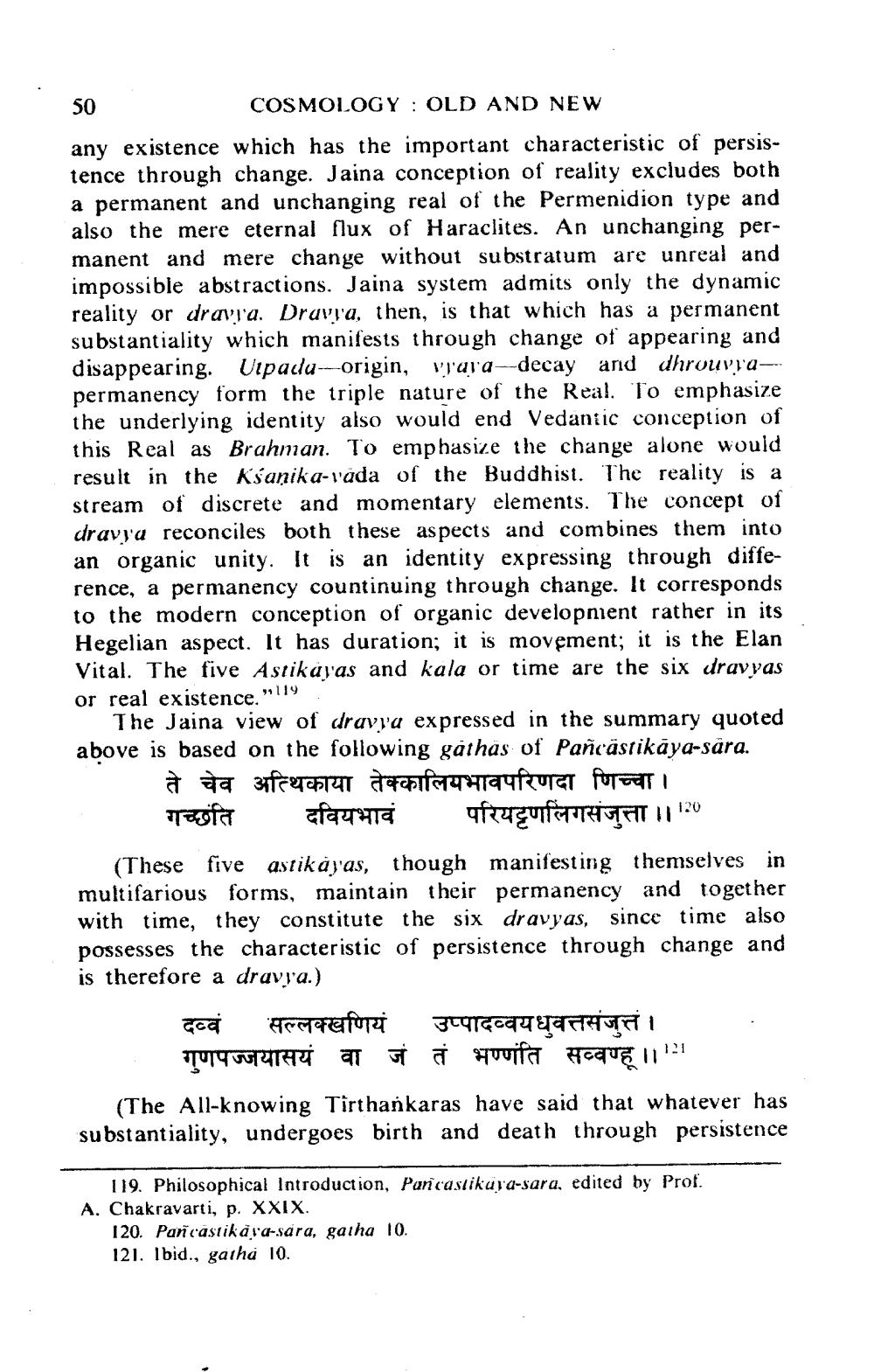________________
SO
COSMOLOGY : OLD AND NEW any existence which has the important characteristic of persistence through change. Jaina conception of reality excludes both a permanent and unchanging real of the Permenidion type and also the mere eternal flux of Haraclites. An unchanging permanent and mere change without substratum are unreal and impossible abstractions. Jaina system admits only the dynamic reality or dravja. Dravya, then, is that which has a permanent substantiality which manifests through change of appearing and disappearing. Uipada-origin, vara--decay and dhrouvra-. permanency form the triple nature of the Real. To emphasize the underlying identity also would end Vedaniic conception of this Real as Brahman. To emphasize the change alone would result in the Ksaņika-lada of the Buddhist. The reality is a
of discrete and momentary elements. The concept of dravya reconciles both these aspects and combines them into an organic unity. It is an identity expressing through difference, a permanency countinuing through change. It corresponds to the modern conception of organic developnient rather in its Hegelian aspect. It has duration; it is movement; it is the Elan Vital. The five Astikavas and kala or time are the six drav vas or real existence."119
The Jaina view of dravya expressed in the summary quoted above is based on the following gathas of Pañcastikāya-sära.
ते चेव अत्थिकाया तेक्कालियभावपरिणदा णिच्चा। गच्छति दवियभावं परियट्टणलिंगसंजुत्ता।।120
(These five astikayas, though manifesting themselves in multifarious forms. maintain their permanency and together with time, they constitute the six dravyas, since time also possesses the characteristic of persistence through change and is therefore a dravra.)
दव्वं सल्लक्खणियं उप्पादव्वयधवत्तसंजत्तं।
गुणपज्जयासयं वा जं तं भण्णंति सव्वण्हू ।।121 (The All-knowing Tirthankaras have said that whatever has substantiality, undergoes birth and death through persistence
119. Philosophical Introduction, Pan castikara-sara, edited by Prof. A. Chakravarti, p. XXIX.
120. Pañ castika ra-sara, gaiha 10. 121. Ibid., gatha 10.




